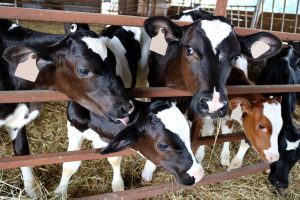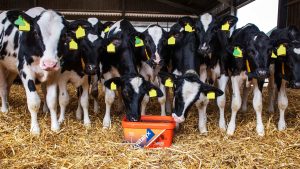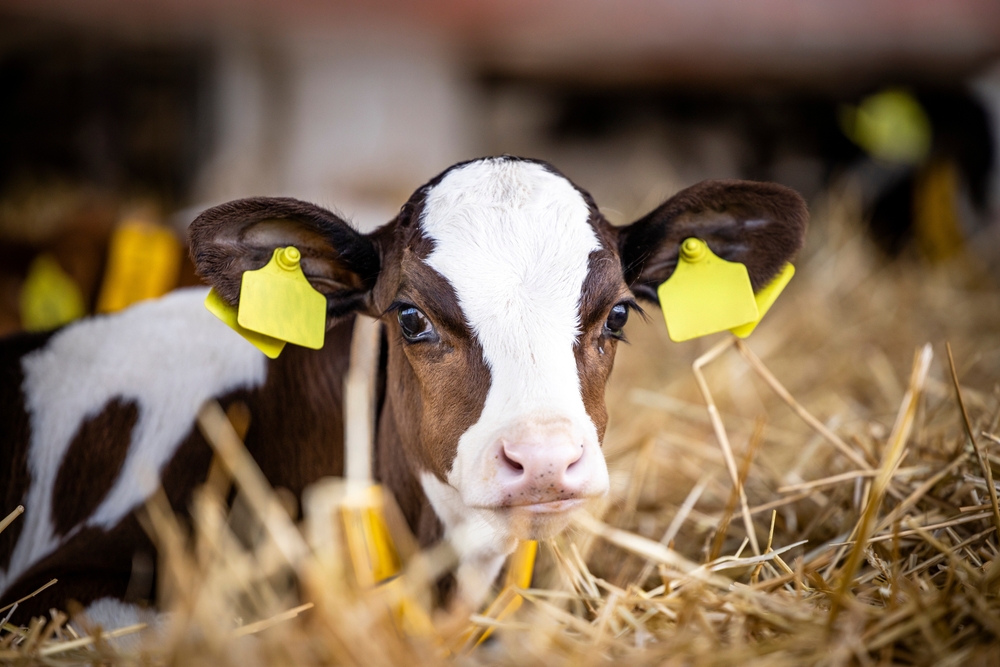Feeding youngstock is one of the most scrutinised and costly areas of livestock management, and rightly so. The first eight weeks of a calf’s life shape everything that follows: growth potential, immunity, resilience to disease and long-term productivity.
Nutrition and housing remain the two biggest influences on calf performance, and both must work hand-in-hand. Colostrum, clean water, a highly digestible starter feed, comfortable dry beds and good ventilation are essential. But as winter draws in and respiratory challenges loom, the spotlight is turning to an area of calf rearing that’s still undervalued on many farms: early dry matter intake (DMI).
Rumen Development Starts on Day One, Not at Weaning

A calf may be born a monogastric, but if we treat it like one for too long, we limit its future. Early access to starter feed and water is critical. Calves introduced to a grain-based pellet within the first three days can begin ruminating in as little as five days. By week three, rumen microbes are established enough to convert feed into usable energy, the foundation of a robust rumen and a strong immune system.
Calves that eat early, thrive early. The target is >1kg of DMI per day for three consecutive days before weaning, a goal that can be met as early as five to six weeks when rumen development is prioritised from birth.
The Right Feed, Offered the Right Way
Not all starter feeds are created equal. Palatability matters, as does the type of carbohydrate. Slowly fermentable starches with high digestible fibre are key to avoiding acidosis and ensuring healthy rumen development. Freshness is equally critical – offer small amounts often, replace frequently, and keep feed protected from moisture.
Small changes in management can yield significant increases in intake:
- Little-and-often feeding
- Palatable diet formulation
- Access to clean water 24/7
- Free-access chopped straw (2.5–3 cm)
- Gradual weaning over two to three weeks
Yet even with the best intentions, encouraging young calves to eat enough pre-weaning remains a universal challenge and that’s where many producers are now turning to nutritional support in the form of feed licks.
A Targeted Approach to Winter Respiratory Risk
With winter comes one of the most costly and enduring problems in youngstock management: respiratory challenges. According to AHDB, every case of pneumonia is estimated to cost farmers in the region of £30 to £80. A startling figure that rises to £500 in fatal cases. In total, pneumonia in calves costs the UK cattle industry more than 50 million pounds every year1, and the hidden losses – slower growth, poorer feed conversion, reduced lifetime performance, are just as significant.
Hygiene, biosecurity, ventilation and vaccination are the starting blocks, but nutrition can do more than fuel growth; it can build resilience.
Where Crystalyx Easy Breather Comes In

Many farmers are now incorporating specialist molasses-based feed licks into their youngstock systems to stimulate intakes, support rumen development and strengthen immune function. Crystalyx Easy Breather goes a step further.
Its patented low-moisture formula concentrates fermentable energy to fuel rumen microbes, enhancing digestion, appetite and dry feed intake. The inclusion of a unique MOS (mannan oligosacchrides) reduces the ability of pathogens to colonise the gut wall by binding with them, and B Glucans stimulate an improved immune response. Added menthol and eucalyptus provide a natural decongestant effect, helping to keep airways clearer at the very time calves need it most.
The Bottom Line
A calf that eats well from birth has a better-developed rumen, a stronger immune system and a far better chance of overcoming winter respiratory challenges without growth checks. That’s better for animal welfare, better for labour, and better for the farm’s bottom line.
Early feeding isn’t just an input cost – it’s the most profitable investment you’ll make in youngstock this winter.
Find your local Crystalyx stockist.
1 AHDB https://ahdb.org.uk/knowledge-library/pneumonia-in-calves

